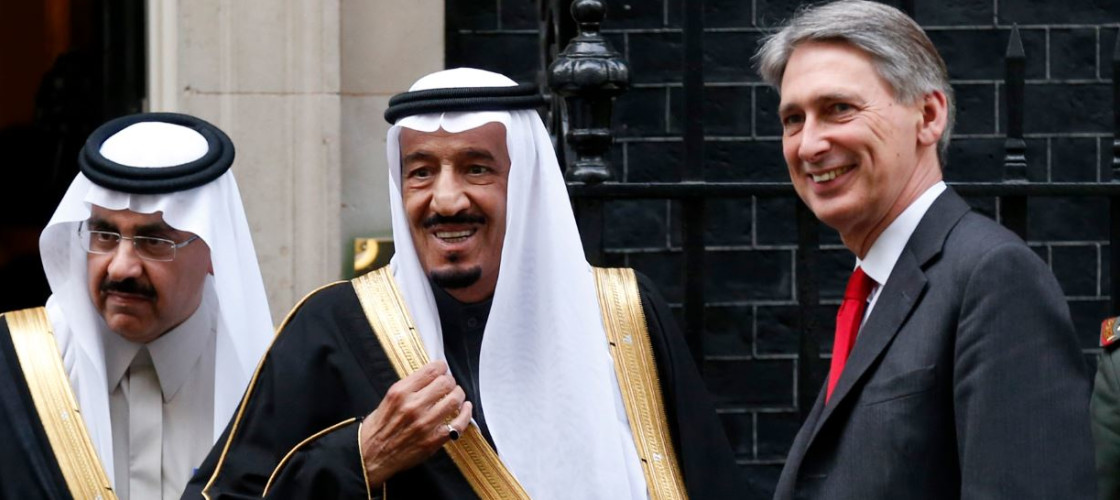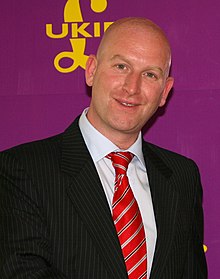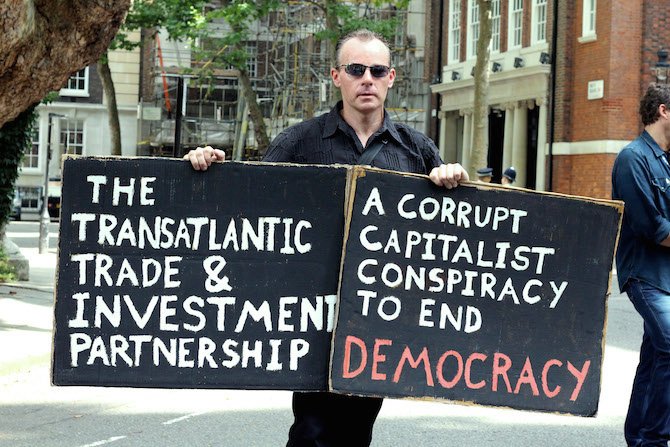By Daniel Margrain

UNICEF reported at least one child is dying every 10 minutes in Yemen and that there has been a 200 percent increase since 2014 in children suffering from severe acute malnutrition, with almost half a million affected. Nearly 2.2 million are acutely malnourished in need of urgent care. An estimated 21 million people – nearly double the number of people who need aid in Syria – require humanitarian assistance in a country where more than 60 per cent of Yemeni’s, according to the UN, are close to starvation. This comes as the country’s health system is on the verge of collapse, in part due to the ongoing US-UK – backed Saudi bombing of the country which began in March 2015.
During the latest wave of 45 airstrikes across the country that began last Sunday (January 22), a school just outside the capital, Sana’a, was hit and 70 people had reportedly been killed in fresh fighting. According to UN figures reported in Reuters, an estimated 10,000 civilians have so far been killed as a direct result of the Saudi-led coalition bombing. However, as the UK government does not keep a record of Yemen’s ‘unpeople’ killed in airstrikes, nor does it have any record of how many “guided missile kits” it has sold to the Saudi regime, the real figure is likely to be much higher. A UN study found that 60 per cent have died from Saudi-led aerial bombardments in the Houthi-controlled north of the country. Journalist Sharif Abdel Kouddous who was based in this region commented:
“Everything has been hit, from homes to schools, restaurants, bridges, roads, a lot of civilian infrastructure. And with that, of course, comes a lot of the suffering.”
The forgotten war
Despite this humanitarian disaster, Yemen has largely been the mass media’s forgotten war having initially been buried a week after Murtaza Hussain revealed the release of previously suppressed documents contained within a 2002 congressional report that emphasized possible links between high-ranking members of the Saudi royal family and the 9/11 hijackers.
Instead, the focus of the mass media has been their demonization of Russia in relation to the proxy-war being fought in Syria. As terrible as the suffering has been for the Syrian people, the humanitarian situation in Yemen is far worse. Not only is it the poorest country in the Middle East whose people suffered widespread malnutrition before the war, but people have no disposable income in order to be able to pay to get themselves out of the country.
Also, Yemen borders the country that is bombing it which severely hinders the ability of people to flee. Even fishermen have been bombed in their boats off the coasts, which rules out the option of going across the sea to get out of the country. The inability of the people to cope with the restriction on imports, in addition to two years of Saudi-led coalition bombing has culminated in a situation in which 18.8 million people are now in need of some form of humanitarian aid.
Breaking international law
Both the UK and US governments are major backers of Saudi Arabia’s bombing campaign. In August last year, the latter approved more than 1bn in military sales to Saudi Arabia, while UK export licenses to the regime were said to be worth more than £1.7 bn up to the first six months of 2015. According to analysis by eminent international law experts commissioned by Amnesty International UK and Saferworld, by continuing to trade with Saudi Arabia in arms in the context of its military intervention and bombing campaign in Yemen, the British government is breaking national, EU and international law.
The lawyers, Professor Philippe Sands QC, Professor Andrew Clapham and Blinne Ní Ghrálaigh of Matrix Chambers, conclude in their comprehensive legal opinion that, on the basis of the information available, the UK Government is acting in breach of its obligations arising under the Arms Trade Treaty, the EU Common Position on Arms Exports and the UK’s Consolidated Criteria on arms exports by continuing to authorise transfers of weapons and related items to Saudi Arabia within the scope of those instruments, capable of being used in Yemen.
They conclude:
“Any authorisation by the UK of the transfer of weapons and related items to Saudi Arabia… in circumstances where such weapons are capable of being used in the conflict in Yemen, including to support its blockade of Yemeni territory, and in circumstances where their end-use is not restricted, would constitute a breach by the UK of its obligations under domestic, European and international law….The UK should halt with immediate effect all authorisations and transfers of relevant weapons pending an inquiry” (emphasis added).
According to Kate Allen, Director of Amnesty International UK:
“This legal opinion confirms our long-held view that the continued sale of arms from the UK to Saudi Arabia is illegal, immoral and indefensible. Thousands of civilians have been killed in Saudi Arabia-led airstrikes, and there’s a real risk that misery was ‘made in Britain’.”
UK complicity & the targeting of civilians
Iona Craig, who won the 2016 Orwell Prize for Journalism, has investigated numerous Saudi-led airstrike sites in Yemen. In an interview on Channel 4 News in December, 2015, Craig asserted that during these strikes, which she said are a regular occurrence, the Saudi’s targeted public buses and a farmers market.
Remnants from a bomb that Craig pulled from a civilian home that killed an eighteen month old baby as well as a four old and their uncle, were American made. Craig at the time stated that she had not personally uncovered evidence of British made weapons but has since corrected this view in the light of subsequent events.
The fact that, as Craig stated, there are twice as many British made aircraft in the Saudi Royal air force than there are in the British Royal air force, and that the British train and supply them with weapons, is by itself, tantamount to the UK government being complicit in the deaths of innocent Yemeni civilians.
Craig emphasized that she has seen evidence which suggests civilian casualties in Yemen are the result of deliberate targeting rather than “collateral damage”. Among the numerous cases the journalist has examined there have been no Houthi positions or military targets in the vicinity – a contention which she claims is supported by the pro-coalition side.
Britain’s active participation in Yemen began in September, 2015 following the bombing by Saudi Arabia of a ceramics factory in Sana’a close to the Yemeni capital which was confirmed as a civilian target. Fragments of a British made missile that had been built by Marconi in the 1990s had been recovered from the scene. With the British providing technical and other support staff to the Saudi-led coalition, the UK government’s role in the conflict is to augment US support as part of a broad-based coalition.
In December, 2015, the US State Department approved a billion-dollar deal to restock Saudi Arabia’s air force arsenal. The sale included thousands of air-to-ground munitions and “general purpose” bombs of the kind that, in October 2015, the Saudi’s used to target an MSF hospital. On the 15 December, 2015, 19 civilians were killed by a Saudi-led coalition raid in Sana’a.
Double-tap strikes
During a recent interview for LBC, Craig said that one of the tactics the Saudi-led coalition have adopted is to strike locations they had previously bombed which invariably kill first responders at the scene of atrocities who are trying their best to rescue the bodies of survivors. The casualties from such attacks outnumber the original bombings. Craig said she has personally witnessed attacks by coalition forces on a civilian market in which twelve people died in the initial attack and a further fifty or more had been killed in the follow-up attack. According to Craig, houses in Sana’a have been hit multiple times, which contradicts the myth that such targets are errors. Airstrikes of this nature are not isolated incidences as the media often portray. As Craig said in the interview:
“They [airstrikes] happen on a regular basis…The Saudi-led coalition have hit 58 hospitals and 39 markets. Routine targets include petrol stations and public markets. …Between March, 2015 when the war started to the end of August, the Yemen Project gathered all of the figures and calculated that there were 8,600 single incidences and amongst that over 3,000 hit civilian sites.”
Public relations
Facing mounting pressure from human rights groups, last month the Obama administration engaged in what was essentially a public relations exercise by announcing that the US government would halt the sale of precision-guided weapons to the Saudi regime. It’s likely the US government will attempt to get around this by selling them to other members of what is a multinational coalition.
In any case, the US government continues to provide its allies with intelligence and there is no indication that its major US ally, the UK, intends to end its authorization of over £1 billions’ worth of weapons to Saudi Arabia over the course of the war.
But most significantly of all, is that Obama’s announcement will do nothing to prevent the refueling of coalition aircraft. Logistically, without being able to refuel, fighter jets are unable to continue with their sorties. As Craig pointed out, this “would stop the bombing campaign literally tomorrow…If the U.S. government did want to stop the bombing campaign, they could do it…But they’re still heavily involved in the whole campaign carrying on.”
Lying to parliament
Towards the end of July last year, the UK government stood accused of repeatedly misleading parliament about Britain’s role in Yemen – news that was buried until its release in the final hours of the last day of the parliamentary term. Rather than accepting it has contravened International Humanitarian Law (IHL) and as a result says it wants to stop trading in illegal weapons of death with one of the most tyrannical regimes on the planet, the UK governments line has been to assure parliament that assessments into Saudi behaviour have been undertaken and that the country has not been abusing human rights in Yemen.
With talks between the country’s warring factions still deadlocked, the Foreign Office (FO) have retracted a series of statements on the crisis in the country describing them as “an error”, adding that no such assessments of human rights had ever been carried out. However, on July 21 last year, the government admitted misleading parliament on six different occasions telling MPs they had assessed Saudi conduct when they hadn’t, insisting that the Saudi’s weren’t breaking IHL. Amazingly, the UK government is not assessing whether the weapons they sell to the Saudi regime are being used in breach of IHL.
Having previously lied in an attempt to stitch-up Julian Assange in order to please his counterparts on the other side of the Atlantic, the then Foreign Secretary, Philip Hammond went a stage further with his piece of mandarin-speak intended to cover-up his misleading of parliament as a justification to sell weapons that are being used to kill innocent men, women and children in Yemen. Hammond’s signing off weapons of death to one of the most brutal regimes on earth without them having been independently assessed beforehand, is indicative of just how detached Hammond is from the plight of his fellow human beings.
The government statement at the time read:
“We have NOT assessed that there has not been a breach of International Humanitarian Law by the coalition”.
This translates as that on no fewer than six occasions the coalition government misled parliament telling MPs that the Saudi’s were not breaching IHL in Yemen. However, they must of known they were. Late on Friday, June 22, 2016, former Shadow Foreign Secretary, Hilary Benn, MP wrote to then Foreign Secretary, Hammond (now Chancellor):
“I urge Boris Johnson, as the new Foreign Secretary, to ensure that the Government does what you originally said it was doing and immediately assess whether IHL has been breached. A continued failure to undertake such an assessment would be an abdication of responsibility and will serve to further undermine Britain’s standing in the world.”
The jaw-dropping revelations which represent complete u-turns on previous answers that the UK parliament were given, are not just about the correction of six parliamentary answers, but have a direct impact on the people of Yemen and the families of the thousands of civilians who have lost their loved ones in the conflict.
Freedom of information
The British governments role in the country initially only came to light following a Freedom of Information request that revealed a ‘memorandum of understanding’ (MOU) between the then Home Secretary Theresa May and her Saudi counterpart Crown Prince Muhammad bin Nayef which was signed secretly during the former’s visit to the Kingdom in 2014. The purpose of the MOU is to ensure that, among other secret deals, the precise details of the arms sales between the two countries is kept under wraps.
Questions about the precise role the UK, US and Saudi Arabia are playing in Yemen, as well as the extent to which UK weapons are implicated in the deaths of civilians, will redouble in the months ahead, particularly after activists won their battle to take the government to court over the affair set for next month (February, 2017). No amount of attempts by the media to bury the Yemen conflict from the headlines will alter that fact.
The government tried to bury some very bad news last July and got found out. As long as there exists alternative media to bring the government to account, they will continue to be exposed for their criminal activities.
COPYRIGHT
All original material created for this site is ©Daniel Margrain. Posts may be shared, provided full attribution is given to Daniel Margrain and Road To Somewhere Else along with a link back to this site. Using any of my writing for a commercial purpose is not permitted without my express permission. Excerpts and links, including paraphrasing, may be used, provided that full and clear credit is given to Daniel Margrain and Road To Somewhere Else with appropriate and specific direction to the original content. Unless otherwise credited, all content is the site author’s. The right of Daniel Margrain to be identified as the author of this work has been asserted by him in accordance with the Copyright, Designs and Patents Act 1988.
Kindly make a small donation
If you’ve enjoyed reading this or another posting, please consider making a donation, no matter how small. I don’t make any money from my work, and I’m not funded. You can help continue my research and write independently.… Thanks!







 Daniel Margrain
Daniel Margrain

 David Davies MP
David Davies MP 

